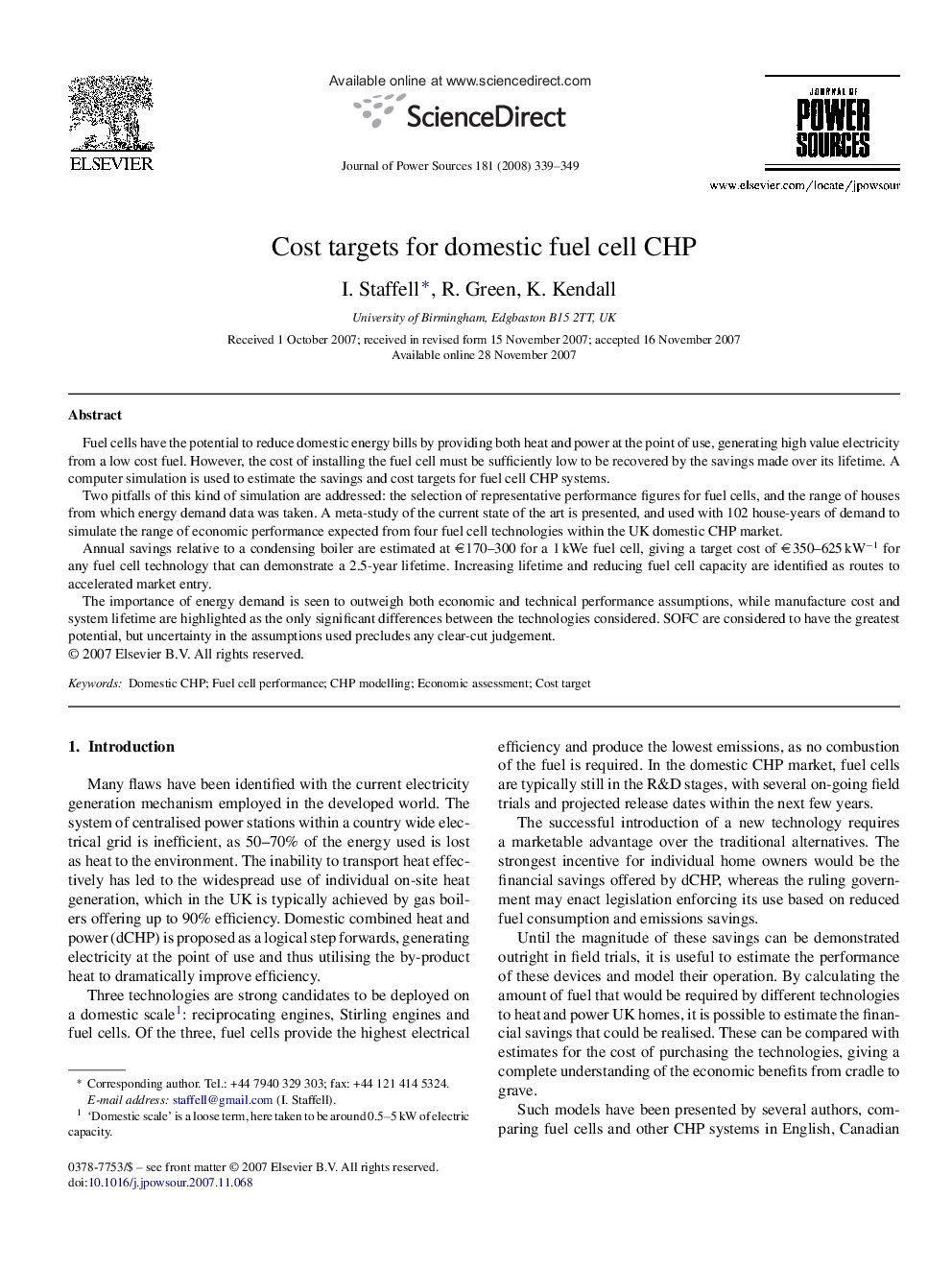| Article ID | Journal | Published Year | Pages | File Type |
|---|---|---|---|---|
| 1294654 | Journal of Power Sources | 2008 | 11 Pages |
Fuel cells have the potential to reduce domestic energy bills by providing both heat and power at the point of use, generating high value electricity from a low cost fuel. However, the cost of installing the fuel cell must be sufficiently low to be recovered by the savings made over its lifetime. A computer simulation is used to estimate the savings and cost targets for fuel cell CHP systems.Two pitfalls of this kind of simulation are addressed: the selection of representative performance figures for fuel cells, and the range of houses from which energy demand data was taken. A meta-study of the current state of the art is presented, and used with 102 house-years of demand to simulate the range of economic performance expected from four fuel cell technologies within the UK domestic CHP market.Annual savings relative to a condensing boiler are estimated at €170–300 for a 1 kWe fuel cell, giving a target cost of €350–625 kW−1 for any fuel cell technology that can demonstrate a 2.5-year lifetime. Increasing lifetime and reducing fuel cell capacity are identified as routes to accelerated market entry.The importance of energy demand is seen to outweigh both economic and technical performance assumptions, while manufacture cost and system lifetime are highlighted as the only significant differences between the technologies considered. SOFC are considered to have the greatest potential, but uncertainty in the assumptions used precludes any clear-cut judgement.
